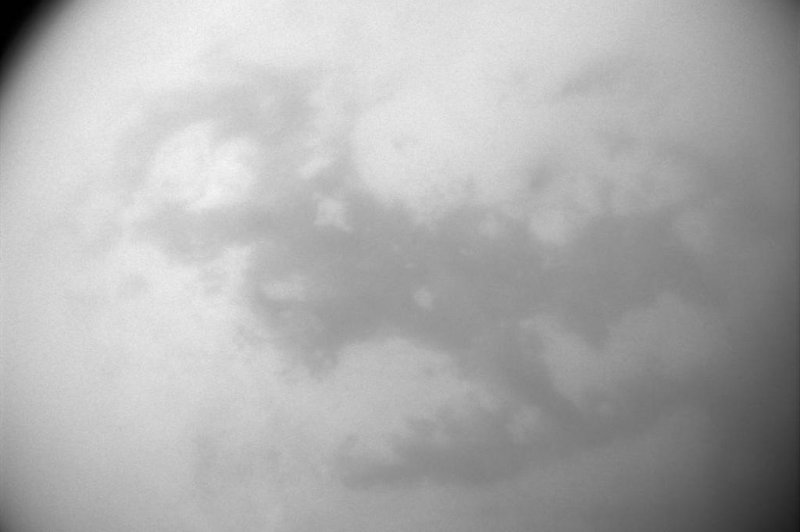PASADENA, Calif., Nov. 2 (UPI) -- Cassini's documentation of Saturn and its myriad satellites continues. On Monday, NASA shared a new Cassini image showcasing the dunelands of Titan, the largest of Saturn's moons.
Through the haze of Titan's atmosphere, the image reveals two vast regions of dunes, Fensal to the north and Aztlan to the south. Titan's dunes are made of hydrocarbon sands. A patch of vertically oriented dunes connects the two regions, forming an dark H-like shape on the moon's otherwise white icy surface.















